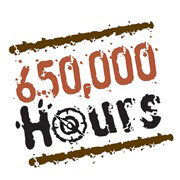Recently I wrote a piece for The Atlantic on resilience. Back in the spring, as I obsessively read about the pandemic, I grew weary of the many articles proclaiming that coronavirus will change us “forever.” First off, I’m not a theoretical physicist, but forever is a long time. The Earth won’t last forever. The universe won’t last forever. Even cockroaches and Twinkies won’t last forever. And the idea that humanity will live hug-free, homebound existences for all eternity seems kind of, well, insulting. Let’s give ourselves some credit: We humans have overcome calamities such as war, plague, famine, floods, earthquakes, droughts, and The Masked Singer. We may be greedy, violent, and shortsighted, but we’re resilient little creatures, too.
A desire for growth, not the lingering effects of fear, will ultimately fuel our national and personal recovery. And by forcing us to slow down, and to confront sickness, death, and economic pain, the pandemic has done something extraordinary. For many people, COVID-19 has not only inflicted suffering, but inspired personal reflection, spurring us to re-evaluate our priorities, desires, and goals — and to reconsider our phone-obsessed, missing-out-on-what-matters existences.
“I don’t want to be concerned about trivial things anymore,” Malika Fair, MD, a widower, new mother, and emergency room physician told me for a story on health-care workers and pandemic-related stress. Or as a friend of mine recently said, “I’ve realized you can’t just wait for things to happen, because you don’t know if they ever will.”
Want to become more resilient? Check out the following:
“Positive psychology is not about denying difficult emotions. It’s about opening to what is happening here and now, and cultivating and savoring the good in your life,” says Ron Siegel, PsyD, assistant professor of psychology at Harvard Medical School, in a Harvard Health blog about staying positive.
The Greater Good Science Center at the University of California in Berkeley recently shared “Seven Ways to Cope with Uncertainty.” How much does uncertainty affect us? Job uncertainty typically impacts people's health more than actually losing a job, research shows.
In my Atlantic piece, I mentioned post-traumatic growth, which is when we thrive after a deeply negative experience. The Washington Post recently covered the concept and The Christian Science Monitor focused on PTG and how residents of Paradise, California reprioritized their lives following the horrific fire of 2017.
We humans are survivors. Stay safe, stay positive, be kind, and wear a mask.
Ken Budd is the author of The Voluntourist and the host of 650,000 Hours. Sign up here for the monthly 650,000 Hours newsletter!

